Month 9:28, Week 4:6 (Sheshi/Kippur), Year:Day 5949:263 AM
2Exodus 6/40
Gregorian Calendar: Sunday 24 November 2019
New Testament Studies
The Complete Messianic Evangelical
New Testament Phronema Study Series
11. The Sabbath Controversies (Mark 2:23-3:6)
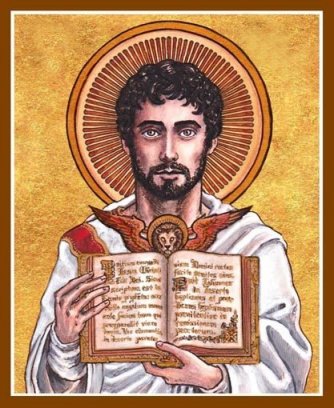
Continued from Part 10 (Mark 2:18-22)
Introduction
Welcome to the 11th part of this New Testament Phronemic Study Series as we resume our examination of a cluster of 'offences' that makes up five 'controversies'.
Six Sabbath Controversy Stories in the Gospels
Today we will try to combine the 4th and 5th controversies as they are both about the same theme, namely, the Sabbath - controveries, which I hinted at last week - controversies which continue to rage between modern day orthodox (Catholic, Eastern and Protestant) Christians and Messianics. There are 6 different Sabbath controversy stories in the Gospels, 4 in the Synoptics (Matthew, Mark and Luke) - of which we are going to study 2 (the other 2 are Lk.13:10-17 & 14:1-6), 2 in the Gospel of John (Jn.5:2-18 & 9:1-41) and - if you put any credance in it - one in the controversial, non-canonical Gospel of Thomas too which is basically an unstructured collection of the sayings of Christ, some authentic and some later additions by Gnostics and others (Thom.2:1-5).
Understanding Who the Pharisees Really Were
Before we get into this, we have to get some historical facts about the P'rushim or Pharisees straightened out because there are many who read these passages with the idea that the P'rushim (Pharisees) were some sort of monolithic authorised 'thought police' with the responsibility for checking out all the Yehudim (Judahites) everywhere to make sure they were doctrinally orthodox. They had no political authority under Herod either, none under the chief cohenim (priests), and certainly none under the Roman authorities, which is why you repeatedly find them going to these authorities when they wanted to get things done requiring the exercise of the civil or religious law. So who were they exactly and why do we find them popping up everywhere a religious discussion or miracle took place?
Between Pharisees and Sadducees
Both the Pharisees and Sadducees formed as opposing factions under John Hyrcanus around 134-104 BC. The Pharisees were more 'middle class', rejected Hellenism and accepted the last judgment, resurrection, angels, heaven and hell. They regarded the so-called 'Oral law' as a fence around the Torah. By contrast the Sadducees were rich and high born and wanted to accept Hellenism, rejecting all the chief Pharisee doctrines I just mentioned.
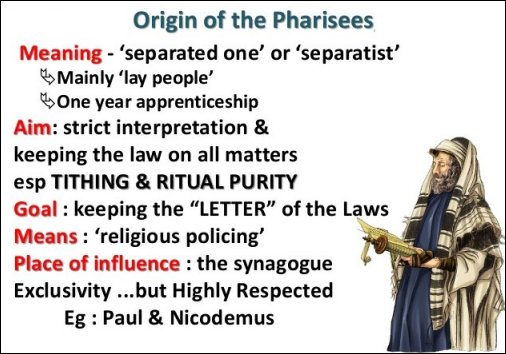
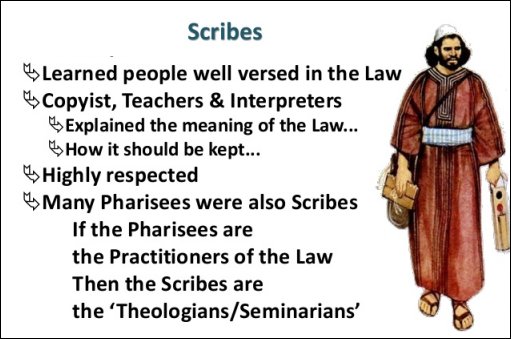
Like Modern-Day Journalists
Historian N.T.Wright likens the Pharisees of the 1st century AD to journalists which is probably the nearest modern-day equivalent. They're not elected to any office, they have no government position, they carry no authority from the police or the judiciary, and yet they appoint themselves the guardians of public morality...these days known as 'political correctness'. Now you and I know that mainstream journalists are 'steered' by their newspaper owners who are themselves steered by other groups (like politicians and bankers), so as to write content pleasing to their owners and bosses, but we won't make things unnecessarily complicated by implying there was any equivalent conspiracy in the 1st century because we don't have much evidence for that.
Self-Appointed Moralists
Basically the Pharisees of the 1st century AD were like your modern 21st century journalist who assumes he or she has the right to scrutinise and criticise every movement of political, social and religious activity, all of whom "gnash their teeth but remain powerless" as any of you who have had hostile brushes with the press will know only too well. And you also know that journalists "not infrequently bind heavy moral burdens, hard to bear, and lay them on the backs of those whose activities they report, while they themselves do not attempt to lift such burdens with their little finger" [1]. Again, you know what I mean, and you why I have such a dim view of most modern journalists (there are exceptions, of course, who are giants in their field).
Pharisee Objectives Were Mostly Political
Philo described the P'rushim (Pharisees) as a self-appointed, zealous, and quite effective body in their guarding of ancestral traditions [2]. And though religious purity was important to them, it is not generally appreciated, that from the Hasmonean and Herodian periods all the way through to the war of AD 66-70, their main aim was a political struggle to maintain Judahite identity and realise the dream of national liberation from the Romans of which being 'pure' was largely symbolic - it was their 'label' (as we discussed last week) or 'battle flag'.
The Main Pharisee Factions
Now the Shammaite faction, who were the majority of the P'rushim (Pharisees), at least until AD 70, had a strong leaning toward revolution. There were your 1st century 'liberation theologians' - remember that as you read of encounters between them and Yah'shua (Jesus) and His talmidim (disciples). These were your modern religious equivalent of 'Antifa' [3] who were readily willing to use violence to further their aims. The 'moderate', 'lenient', 'live-and-let-live' Pharisee faction were the minority followers of Hillel (at least until AD 70) who are well represented by Gamaliel's attitude in Acts 5:33-40 when he spoke in mdoerate tones about the first Christians/Messianics - 'just let them be', he advised, 'and if they are not from Elohim (God), they will just fizzle out on their own'. Now Paul, when we encounter him, was a typical zealous, severe, radical, revolutionary follower of Shammai. And we all know how willing he was to use coersion and murder to 'protect Judean identity'.
The Two Revolutionary Agendas
One other thing I want you to be aware of before we get into today's text, so you don't misrepresent the Pharisees or impose meanings on the Scriptures which they cannnot bear, and it's this: for the majority P'rushim (Pharisees) at this time in history, purity in its different manifestations such as food laws (kashrut), handwashing, sabbath-observance, etc.) was not an end in itself, if indeed if ever really was that. It was the symbol of national identity and national liberation - their spiritual 'badges' - deliberately cultivated by these Pharisees, that was all the more important for a people who perceived themselves under threat.
 The Pharisees wore ritual purity toward food,
The Pharisees wore ritual purity toward food,
the sabbath, etc., as a badge of national identity
The Abuse of Nationalism
It's a perfect example of nationalism combining with religion, always a toxic mixture, and always deadly to true spirituality. It was the bane of Israel historically and contributed to its fall. This is the atmosphere or phronema surrounding these stories we're reading in Mark. And since that is what they were about, then like all revolutionary movements, the P'rushim (Pharisees) were very keen to know what was going on outside their particular group. You may remember how at the beginning of the Gospel they went to check up on John the Baptist! It was how John and Yah'shua (Jesus) would impact their political agenda that interested them the most keenly, an agenda they meant to defend at all costs, allowing no one to get in their way.
Two Revolutions in Conflict
So there are two revolutions going on side-by-side here - the one steered by the dominant Pharisee faction, and the one breaking into the world through the Ruach (Spirit) in Messiah Yah'shua (Jesus), revolutions that are diametrically opposed to one another, the one being pacifist and the other endorsing the spilling of blood.
Controversy #4 - Mark 2:23-28
So let's go ahead and read both of today's segments together in the Kingdom New Testament (KNT) and then we can start digging a little deeper:
"One sabbath, Yah'shua (Jesus) was walking through the cornfields. His talmidim (disciples) made their way along, plucking corn as they went (Dt.23:25). 'Look here,' said the Pharisees to Him, ' why are you doing something illegal on the Sabbath?' (Ex.34:21)
"'Haven't you read what David did,' replied Yah'shua (Jesus), 'when He was in difficulties, and He and His men got hungry? He went into Elohim's (God's) house (this was when Abiathar (Ahimelech) was (who later became [4] Cohen Gadol/High Priest), and at the Lechem haPanim ('Bread of the Presence' - Ex.25:30; Lev.24:5-9), which only the Cohenim (Priests) were allowed to eat - and he gave [some of] it to the people with him (1 Sam.21:1-6). The Sabbath was made for humans,' He said, not humans for the Sabbath; so the Son of Man is Master (Lord) even of the Sabbath.'
"News about Him spread swiftly through the entire region of Galilee" (Mk.2:23-28, KNT; cp.Mt.12:1-8; Lk.6:1-5).
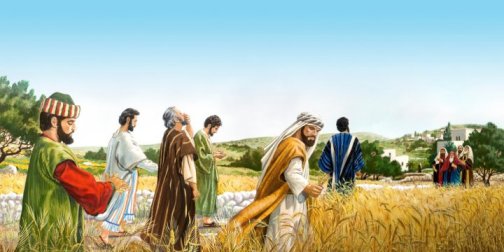
Controversy #5 - Mark 3:1-6
"Once more Yah'shua (Jesus) went to the synagogue. There was a man there with a withered hand. People were watching to see if Yah'shua (Jesus) would heal him on the Sabbath, so that they could frame a charge ahainst Him.
"'Stand up, said Yah'shua (Jesus) to the man with the withered hand, 'and come out here.' And He said to them, 'Is it lawful to do good on the Sabbath, or to do evil? To save life or to kill?' They stayed quiet.
"He was deeply upset at their hard-heartedness, and looked around at them angrily. Then He said to the man, 'Stretch out your hand.' He stretched it out - and his hand was restored. The Pharisees went out right away and began to plot with the Herodians against Yah'shua (Jesus), trying to find a way to destroy Him" (Mk.3:1-6, KNT; cp. Mt.12:9-14; Lk.6:6-11).
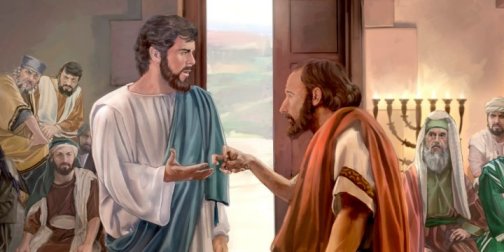
The Cornfield Question
So what are you picturing in your mind here as you read these passages? Let's start in the cornfield and re-read that part using the New King James Version (NKJV) in iour Evidence Bibles (EB):
"Now it happened that He went through the grainfields on the Sabbath; and as they went His talmidim (disciples) began to pluck the heads of grain. And the Pharisees said to Him, 'Look, why do they do what is not lawful on the Sabbath?'" (Mk.2:23-24, NKJV; EB, p.1391).
As you know, according to the Torah (Law), it was permissible under ordinary circumstamces for a hungry traveller to help himself by plucking ripe grain and eating it (Dt.23:25) but to do it on the Sabbath was tantamount, in the eyes of the Torah-teachers (Scribes), to doing work, in other words, doing work by reaping. And repaing was was one of the 39 key activities traditionally forbidden on the Sabbath (Ex.34:21). And that is why a complaint was lodged with Yah'shua (Jesus) - because they were allegedly 'working' on the Sabbath.
Lying in Wait
The first thing we need to be aware of is that there weren't Pharisees hiding in every field of Israel on the Sabbath spying on people to see if they were breaking the mitzvot (commandments). That, of course, would be silly and impractical. For the most part, the Pharisees and other religious leaders would not have concerned themselves with such matters, in the same way we don't have journalists hiding in the forest with binoculars and zoom-lens cameras checking out to see if we're breaking the law of the land in any way. But when someone suddenly comes to prominence who comes to be regarded as a threat, then those threatened are suddenly watching him like a hawk for the slightest fault. It's going on right now as I speak with political opponents of the President of the United States desperately trying to impeach him for the slightest infractions of the law even though his accusers and their supporters in high places are in many cases guilty of serious crimes themselves that have yet to be brought to the courts.
The Controversial Figure of the Messiah
The fields the Pharisees were hanging around were those fields that Yah'shua (Jesus) and His talmidim (disciples) walked though, and specifically on the Sabbath. Until He started doing controversial things - and according to Mark this is the 4th controversial thing he did - the Pharisees wouldn't have paid any attention, just as they wouldn't have paid the slightest attention to the average Yehudi (Judahite) to see if they were living the Torah properly or not. But Yah'shua (Jesus) wasn't your average Yehudi (Judahite) - He was a navi (prophet) anouncing the arrival of the Kingdom of Elohim (God), doing miracles, forgiving people of their sins and loudly hinting in no uncertain terms that He was the expected Messiah and that He was even Elohim (God)!
Modern-Day Pharisees and Pararazi
So of course they were spying on Him, just as the current US President is being examined for faults, just as we were once spied on by journalists in the forest next to our home with binoculars and zoom-lens cameras many years ago because we were 'different' and because they had heard malicious rumours. So they came looking for suspicious behaviour to verify the rumours and make a juicy story to sell newspapers. And on another occasion they roared up our drive in a car, hurriedly snapped pictures of our front door, and then vanished equally quickly in a cloud of dust presumably expecting to be met with machine-gun and mortar fire hurled by desperados. (I never bought or read their newspaper again after that). So no wonder eyes were fixed on the Saviour, ungodly eyes eager for scandal, eager to spread rumours and commit lashon hara. And sadly, believers do this too against fellow believers they don't agree with, a symptom of the tragic divisions in the Body of Christ.
 Whenever the status quo is threatened, paparazi are sent in
Whenever the status quo is threatened, paparazi are sent in
to capture the slightest whiff of scandal or impropriety
Yah'shua Uses the Argument Form of the Rabbis
Yah'shua's (Jesus) reply took the form of an argument deduced from the Tanakh (Old Testament) very much in the manner of the rabbis themselves - he was using 'their kind of language', which is always the best kind - meet 'like with like' but in a clean and honourable way. Let's have a look at that now:
"But He said to them, 'Have you never read what David did when he was in need and hungry, he and those with him: how he went into the house of Elohim (God) in the days of Abiathar the Cohen Gadol (High Priest), and ate the showbread, which is not lawful to eat, except for the Cohenim (Priests), and also gave some to those who were with him?" (Mk.2:26, NKJV)
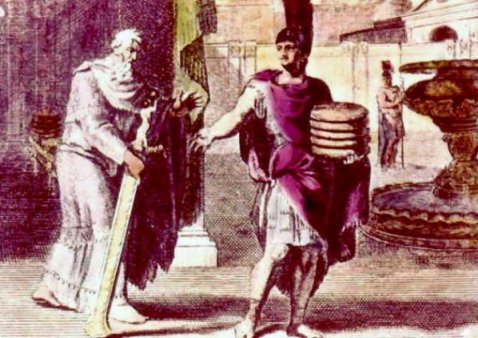 David takes showbread, and the sword of Goliath, from the
David takes showbread, and the sword of Goliath, from the
Tabernacle to feed his hungry men while fleeing King Saul
The Pharisees as Stage Props
Now I know I have already given a lot of time over to explaining who the P'rushim (Pharisees) were but remember that they, like the Torah-teachers (Scribes) and Sadducees, appear and disappear in the narratives as the compiler - in this case, Peter through Mark - requires them. They are but part of the stage props and scenery for the Story. They're not actually important to us, the listener or reader, except that they provide contrast. What interests us are the principles which we can apply to our lives as Kingdom-builders that are highlighted by using those enrolled on the 'dark side'.
An Appeal to David's Action
The "have you never read" response of Yah'shua (Jesus) was the usual way rabbinical arguments were conducted and the Master was...literally 'master'...at doing so, so much so that His responses became proverbial, much to the chagrin of the religious leaders whom he defeated rapidly, leaving no room for debate. Here Yah'shua (Jesus) is comparing the action of His talmidim (disciples) with an action of David and his followers. Both broke the Torah (Law) (though not the same mitzvah or commandment) and both did it under the compulsion of hunger (though we're not told explicitly that's the reason the talmidim/disciples did it, but it's implied).
A Flagrant Breach
Now you'll find commentators making observations like, 'Yah'shua (Jesus) as Messiah was the son of David, so David and his men corresponded to Yah'shua (Jesus) and His talmidim (disciples)'. Well, yes, this may be true, but there's more. David's breach of the Torah was so flagrant that it was notorious, so much so that it had been much discussed by the rabbis, and that may be a reason why Yah'shua (Jesus) cited it because they had debated this incident and had come to no certain conclusion. There were, as in any unresolved controversy, both conservative and liberal viewpoints.
Check-Mate Again
Remember, these people - the P'rushim (Pharisees) - are spiritually blind and no amount of reasoning is going to convert any but the more softer-hearted followers of Hillel. Yah'shua (Jesus) is seeking the repentant, not the hard-hearted, extremist Shammaite sectarians, but to win the ordinary people He has to silence the over-bearing Shammaite religious leaders. And He does so brilliantly. They can't answer Him. Moreover, as I said, Yah'shua (Jesus) was using their own kind of argumentation so they couldn't object to His method. It was a case of check-mate yet again. We get an idea of their spiritual state at the end of the 5th controversy when we're told they "went out and immediately plotted...how they might destroy them" (Mk.3:6, NKJV). But I am jumping ahead of myself...
The 'Looking Over'
So, to get this clear: the main interest of the P'rushim (Pharisees) was to make sure that this new navi (prophet), who claimed the authority of Israel's Elohim (God) and Israel's Scriptures, who was announcing the arrival of the Kingdom which they too longed for - was to check Him out for orthodoxy (correct doctrine) and orthopraxy (correct practice). Did He measure up to the standards as they upheld them? And, most important of all, would He support their type of revolution against Rome when it came? Was He 'on side'? That's all that really mattered to them.
Danger Signals to the Pharisees
From their perspective the signs were not good. I mean, He has spent a week healing, so surely He's going to take a break on the Sabbath? But, no, He carried right on healing! And the fact that He was able to answer their challenge with a legal argument didn't mean this was something to do with fine-tuning the interpretation of Torah which could have taken place at any time. What Yah'shua (Jesus) was doing was something far more dangerous from their point-of-view: what He was saying was that since they were unable to use the Torah against what He was doing, what that meant, symbolically, was that they didn't have the power or authority which they claimed as spiritual leaders! This was a clash of Kingdom toqef or authority. And this is the point: the four Gospels are all about the arrival of the Kingdom and what that now means. 'And 'Kingdom business' is what we are saved for.
Like the Parable of the Prodigal Son
Let's see another, perhaps more important, reason why Yah'shua (Jesus) chose this particular illustration taken from the days David was a fugitive from King Saul. You see, David was the true, anointed King and as proof, he was, in due time, vindicated by Yahweh. Yah'shua's (Jesus') retelling of this story functions a bit like the Parable of the Prodigal Son (Lk.15:11-32), inviting His hearers to discover which rûle they are playing. Yah'shua (Jesus) and His followers are like David and his motley crew. The Pharisees are like Saul's servant, Doeg the Edomite, spying on him and then running off to tell the authorities (1 Sam.22). And in Matthew's parallel account (Mt.12:3-8, EB, p.1348) we're told additionally:
"Or have you not read in the Torah (Law) that on the Sabbath the cohenim (priests) in the temple profane the Sabbath, and are blameless?" (Mt.12:5, NKJV)
Ministers Given Permission to Break the Sabbath
In other words, the cohenim (alone) are allowed to work on the Sabbath because they're doing Yahweh's work, a bit like the Pastor each Sabbath preaching and ministering (which is hard work)! In other words, there are sometimes special exceptions for the rules. Put simply, the Sabbath is sometimes subordinate the needs of man on a case-by-case basis of which ministers working hard on the Sabbath is a particular (and legitimate) example, getting urgent medical attention for someone, feeding livestock, etc.. Doctors, firemen, nurses, police and other emergency personal may therefore obviously break the Sabbath Law constructively to save life, limb and property. But where do you draw the line?
 Pastors are required to break the sabbath because they must serve
Pastors are required to break the sabbath because they must serve
the flock on it - it's often the busiest day of the week for them
What are the Sabbath Exceptions?
So is there a bigger exception here? Are we being prepared to have complete freedom to do as we want on the Sabbath? Is this, as Protestants and others maintain, our being prepared for Yah'shua (Jesus) doing away with the Torah (Law) altogether? Is this the justification for ending true Sabbath worship and substituting it for the Saturday sabbath of the rabbis and their Messianic and Adventist offshoots, or the Sunday 'sabbath' or 'Lord's Day' of Rome and all its Protestant break-offs?
Son of Man, Master of the Sabbath
This is, unfortunately, where Messianics and Evangelicals often fall out which is why we have to get our theology right by carefully examining the last two verses of chapter 2. The 4th controvery concludes with this very important and far-reaching statement as far as the doing of correct theology is concerned:
"And He said to them, 'The Sabbath was made for man, and not man for the Sabbath. Therefore the Son of Man is also Master (Lord) of the Sabbath" (Mk.2:27-28, NKJV).
Yah'shua as Executive Creator
Keeping the Ten Devarim or Words - the Ten Commandments - was reinforced by the nevi'im (prophets) in every generation. Yah'shua (Jesus) was no exception. As the executive Creator of the world and of the Sabbath, Yah'shua (Jesus) calling Himself "Master (Lord) of the Sabbath" was quite natural, even if it shocked His listeners. He's the One who rested on the 7th day of Creation, He's the One who tells us to rest each 7th creation day too, and He's the One who tells us to gather for worship on that day.
The Creator Progressively Revealed by the Apostles
Now you and I know these things but the talmidim (disciples) did not yet know that. These are the earliest days of His ministry - we're still only in chapter 2 with 14 more chapters to go still! Yes, the apostle John talks about the Messiah as the Creator right at the beginning of his Gospel but we must wait another 20 or so years before he writes about that (Jn.1:1-3) because remember he is the last one to write his Gospel toward the end of the century. Paul will soon be writing about this (1 Cor.8:6; Col.1:16-17) but this is still 20 or more years after the event of the 4th controvesy. Likewise the unknown writer of Hebrews will do the same, telling us that Yah'shua (Jesus) was the one "through whom also He (Yahweh) made the worlds" (Heb.1:2, NKJV).
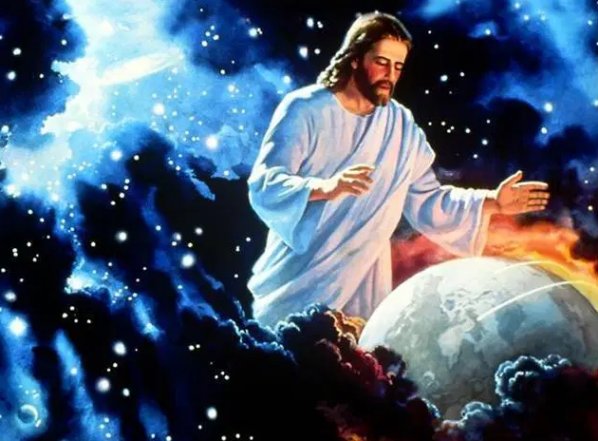 Yah'shua the Messiah is the executive creator of everything
Yah'shua the Messiah is the executive creator of everything
The Sabbath as a Visible Sign of Elohim's People
Israelites didn't observe the Sabbath to earn merit with Elohim (God) - it was, rather, a visible sign that they belonged to Elohim (God), the Creator of the world, who had Himself rested on the 7th day - so this was yet another indication that Yah'shua (Jesus) was claiming to be Elohim (God). Do you see now why the P'rushim (Pharisees) were particularly careful to check up that would-be leaders and new movements were observing the Sabbath properly?
Shammaic vs. Hillelic Attitudes
Yah'shua (Jesus) is not implying by His teaching and actions that there is no longer any need for the Sabbath, or that He is about to replace it with 'something else', as Protestants insist which they have since called 'the Lord's Day' or '8th day' of the Roman week. What Yah'shua (Jesus) is doing is pleading special circumstances (namely, human need...hunger) and He gives a scriptural precedent (David helping himself to the showbread which obviously he didn't do every day). The more liberal Hillelic Pharisees would have agreed with Yah'shua (Jesus), I suspect, because they were much more humane, but we are dealing with the more extreme Shammaic Pharisees here willing to kill in their zeal to be supposedly 'holy'.
Awaiting Recognition and Enthronement Like David
The main issue, for Yah'shua (Jesus) and for this Gospel account, isn't even the right to break a lower commandment (the Sabbath) in order to obey a higher one (like feeding someone who is hungry). Far more important is that Yah'shua (Jesus) puts Himself on par with King David in the period when David, already anointed by Samuel but not yet enthroned (because Saul will still King), was on the run, gathering support, waiting for his time to come. That's the big issue, that's the big claim being made here, that Yah'shua (Jesus) is the true King (not Herod Antipas or Caesar), marked out by Yahweh at His baptism in the River Jordan when the dove descended upon Him (which we saw near the beginning of chapter 1), for Yah'shua (Jesus) is saying that He, like David on the run, has not yet been recognised and enthroned. That's the bigger contention!
Authority Over the Torah as a Kingdom Sign
Therefore, Yah'shua (Jesus) is telling us, that He has the right, when He and His people are hungry, to bypass the normal regulations, but not to dismiss His own Father's Torah at whim. He has the authority to use His discretion as will the talmidim (disciples) when He has left them. In other words - and this is big so please play close attention - this kind of Sabbath-breaking, so far from being an act of casual or wanton spiritual or civil disobedience, is a deliberate sign, like the refusal to fast: it is a sign that the King is here, that the Kingdom is breaking in! The New Creation is already bursting in onto the old world which the P'rushim (Pharisees) and the rulers of this world in general are so desperate to maintain because it is the base of their own claim to power, but which they will, in the end, be forced to relinquish.
The Coded Messianic Claim
So this, the 4th Controversy, ends with Yah'shua (Jesus) once again (for the second time) invoking the "Son of Man", the messianic figure of Daniel 7, whose arrival and enthronement signals the start of Elohim's (God's) Kingdom. The Messiah alone is therefore the "Master (Lord) of the Sabbath", the true representative human being, with authority over human institutions that might otherwise repress men and women. So this, once again, is a coded messianic claim, not some new doctrine, redefinition or reassignment of the Sabbath to another day, or its removal altogether, to be replaced by some mythical '8th day' invented by the learned men of Rome.
Healing of the Man With the Withered Hand
Let's move on to the 5th and last Confrontation by turning to the third chapter:
"And He entered the synagogue again, and a man was there who had a withered hand. So they watched Him closely, whether He would heal him on the Sabbath, so that they might accuse Him. And He said to the man who had the withered hand, 'Step forward.' Then He said to them, 'Is it lawful on the Sabbath to do good or to do evil, to save life or to kill?' But they kept silent. And when He had looked around at them with anger, being grieved by the hardness of their hearts, He said to the man, 'Stretch out your hand.' And he stretched it out, and his hand was restored as whole as the other. Then the Pharisees went out and immediately plotted with the Herodians against Him, how they might destroy Him" (Mk.3:1-6, NKJV; EB, p.1391).
The Pharisees are Finally Exposed
Well, that was the final straw for the P'rushim (Pharisees) of the School of Shammai, wasn't it? The debate is over for them because now they are without excuse. And notice it isn't specifically His claim to be Messiah or Elohim (God) that pushes them over the brink - they for sure use the blasphemy accusation later, hiding behind religion as so many do. No, what upset them this time was their inability to manipulate their religion in order to defend their power base. And since they had no political or ecclesiastical power - which is why they were driven to the Herodians for help - it was the exposure of their spiritual and moral bankruptcy that was their undoing. Like crooked journalists completely exposed for their dishonest reporting, they had only two options left - to repent or to become fanatically murderous opponents. They chose the latter.
Beyond Reasoning
When the principles on which Yah'shua (Jesus) acts are clearly stated by Him, as they invariably are, they are seen to be so self-evidently right that no rational opposition is any longer possible. Of course, men and women can still, and do, oppose Yah'shua (Jesus), but that is now because of their sin and their refusal to recognise the emet (truth). They will do what all extremist political organisations do when they are bankrupt of ideas - they will incite the mob instead. They will cease to reason, as we are commanded (Is.1:18) and instead shout down their opponents with accusations and insults. Yah'shua (Jesus) knew what they had decided and was grieved by "the hardness of their hearts" - they have exercised their free agency and have rejected Him utterly now, and so early on! Their blindness is a punishment for their sin into which they have voluntarily allowed themselves to be led by supernatural, demonic forces.
The Sabbath for Works of Love and Mercy
I wanted to finish today on a positive note which I believe this 5th Controversy gives us. Here Yah'shua (Jesus) is revealing that the Sabbath should not only be devoted to rest from regular work, not only to scripture study and devotion, but also to works of love and mercy such as what we have witnessed so far. This is sacred time, dedicated to Yahweh, and should be used in a way that maximises the glory we can give to Him. Later John would recall something else Yah'shua (Jesus) had said about the Sabbath:
"For this reason the Yehudim (Judahites) persecuted Yah'shua (Jesus), and sought to kill Him, because He had done these things (healings) on the Sabbath. But Yah'shua (Jesus) answered them, 'My Father has been working until now, and I have been working'" (John 5:16-17, NKJV).
A Sabbath-Kind of 'Work'
This is a very significant statement because though we are to cease regular physical labour and rest our bodies on the Sabbath, there is nevertheless a second sense in which we, like Yahweh, must keep on 'working' - not in earning a salary or doing our own thing but, like pastors, serving the people in ministry, and blessing others by administering healing of all sorts. In other words, doing Kingdom work within a restful setting.
To Do Good or to Do Evil
Finally, you may have wondered at the question Yah'shua (Jesus) asked the Pharisees, "Is it lawful on the Sabbath to do good or to do evil, to save life or to kill?", which they refused to answer, and what it means. It's an unusual construction. "To save life or to kill" has a double significance. The rabbis themselves admitted that relief might be given to a sufferer when life was in danger, and being in danger was interpreted liberally. On the other hand, the P'rushim (Pharisees) were using the Sabbath with murderous intention, plotting to kill Yah'shua (Jesus). His question was, brutally and honestly: "Which is the more appropriate to the Sabbath day? Healing the sick or plotting to murder someone?" The people could only have interpreted the Saviour's question in one way, so this was a roundabout way of publically exposing these P'rushim (Pharisees) for what they really were - the very antithesis of the Sabbath and of the Kingdom of Chayim (Life) He was bringing. They were of their father the devil, though He hasn't said so directly to their faces yet (Jn.8:44).
The Final Division and the Curse of Religiously-Directed Nationalism
So the healing of the man with the withered proved to be the final cleavage between Yah'shua (Jesus) and the religious authorities. It was a parting of the ways. Interesting that it should involve a diseased hand because the hand is a symbol of works. We are saved to do good works whereas Satan curses his own followers to do bad ones. And so bitter was the opposition that the P'rushim (Pharisees), who were ardent nationalists, were ready to join forces with their deadliest opponents, the Herodians, who were the quislings of their day, the 1st century equivalent of our modern globalists - and as you know, nationalists and globalists (supra-nationalists) are worlds apart...and yet not, because both are hiding their sins behind symbols. Be careful of both because in the end times they will make common cause and viciously turn on Yahweh's people as they have done in the past.
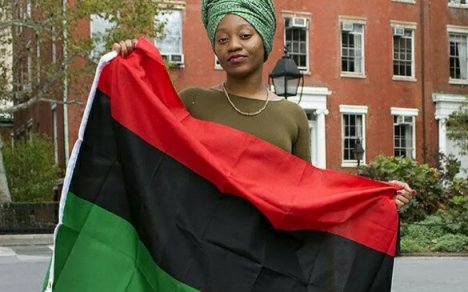 Corrupt leaders are known to hide behind flags for validation
Corrupt leaders are known to hide behind flags for validation
Conclusion
May Yahweh bless your week and may you especially seek in prayer how you can best honour the Yahweh's Sabbath day and in addition to inject it with works of love and mercy. Amen.
Endnotes
[1] N.T.Wright, Jesus and the Victory of God (SPCK, London: 1996), p.392
[2] Philo, Spec.Leg. 2:253
[3] The radical left-wing 'Anti-Fascist' revolutionary group of the early 2010's
[4] Ahimelech was, in fact, Cohen Gadol (High Priest) when this incident took place, not his only son, Abiathar, who was the more famous of the two, being the only person to survive the slaughter by Doeg (1 Sam.22) a very short time after the incident. The wording is sufficiently ambiguous that "in the time of Abiathar" could either mean: (1) "in the time of Abiathar, who later became Cohen Gadol (High Priest)" (naming Abiathar because he was a more prominent person in the narrative, remaining High Priest for many years of David's reign; or (2) "in [the Scripture section of] Abiathar, the High Priest" (taking Gk. epi plus the genitive to indicate location in Scripture, as in Mark 12:26).
Acknowledgements
[1] Tom Wright, Mark for Everyone (SPCK, London: 2001)
[2] D.E.Nineham, The Gospel of St.Mark; The Pelican New Testament Commentaries (Penguin Books, Harmandsworth, Middlesex, England: 1972)
[3] J.C.Fenton, The Gospel According to John in the Revised Standard Version (OUP: 1979)
[4] J.R.Dummelow, The One Volume Bible Commentary (Macmillan, NY: 1975)
[5] Thomas M.Mumford, Horizontal Harmony of the Four Gospels in Parallel Columns (Deseret, SLC, Utah: 1982)
[6] Hugh Anderson, The New Century Bible Commentary: The Gospel of Mark (Eerdmans, Grand Rapids, Michigan: 1981)
[7] Ed. Gerhard Kittel, Theological Dictionary of the New Testament - 10 vols. (Eerdmans, Grand Rapids, Michigan: 1976)
[8] N.T.Wright, The New Testament and the People of God: Christian Origins and the Question of God (SPCK, London: 2013)
[9] N.T.Wright, How God Became King: The Forgotten Story of the Gospels (Harper One, NY: 2012)
[10] N.T.Wright, Jesus and the Victory of God (SPCK, London: 1996)
[11] N.T.Wright, The Resurrection of the Son of God (SPCK, London: 2003)
[12] N.T.Wright, The Challenge of Jesus: Rediscovering Who Jesus was and Is (IVP Academic, Downers Grove, Illinois: 1999)
[13] Rev.Prof.F.Davidson (ed.), The New Bible Commentary (Inter-Varsity press, London: 1953)
[14] Ed. Margaret Dunlop Gibson, The Commentaries of Isho'dad of Merv, Bishop of Hadatha (c.850 AD) in Syriac and English, Vol. 1 (Cambridge University Press: 1911)

 V148
V148
|


